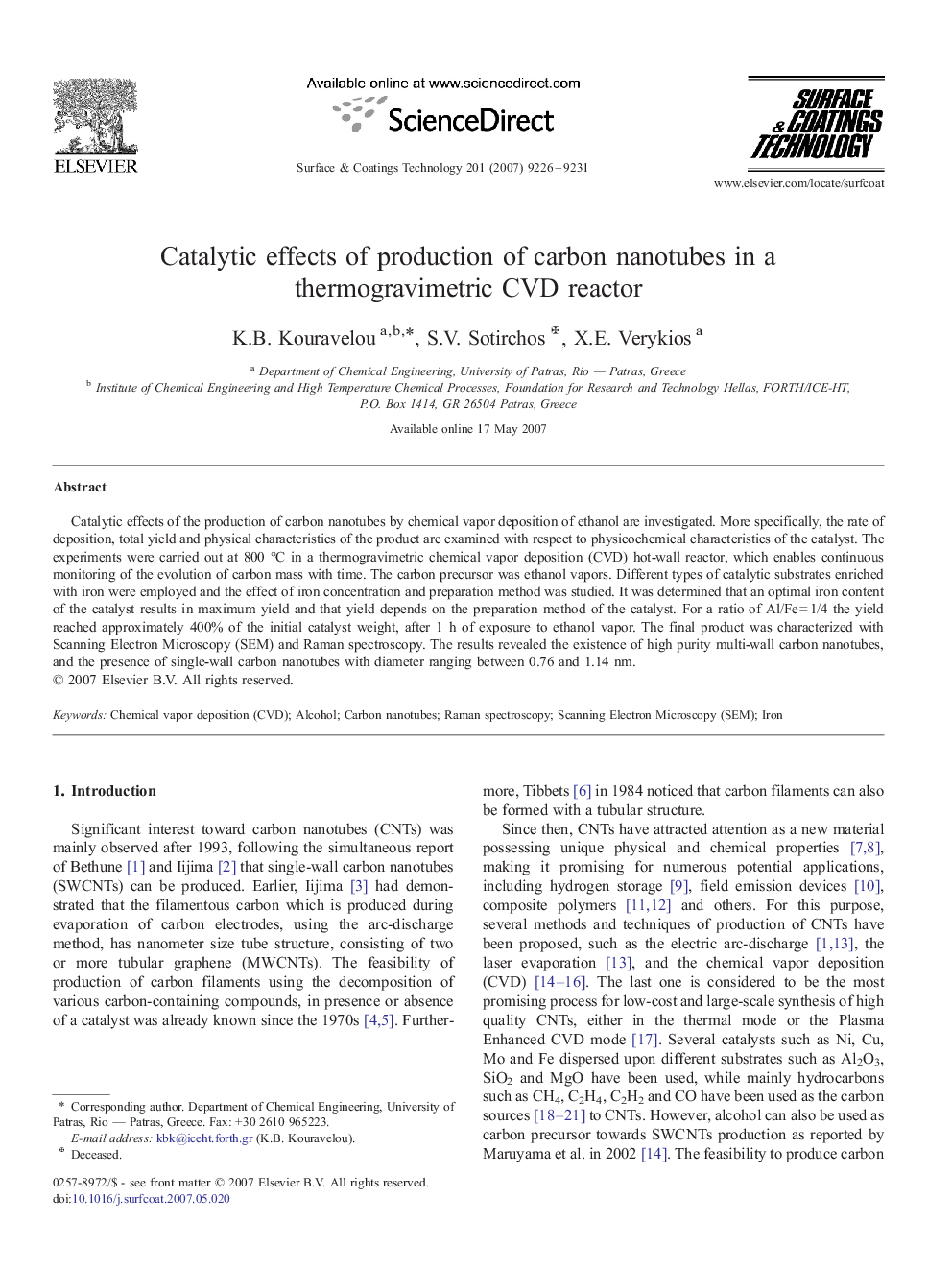| Article ID | Journal | Published Year | Pages | File Type |
|---|---|---|---|---|
| 1662327 | Surface and Coatings Technology | 2007 | 6 Pages |
Catalytic effects of the production of carbon nanotubes by chemical vapor deposition of ethanol are investigated. More specifically, the rate of deposition, total yield and physical characteristics of the product are examined with respect to physicochemical characteristics of the catalyst. The experiments were carried out at 800 °C in a thermogravimetric chemical vapor deposition (CVD) hot-wall reactor, which enables continuous monitoring of the evolution of carbon mass with time. The carbon precursor was ethanol vapors. Different types of catalytic substrates enriched with iron were employed and the effect of iron concentration and preparation method was studied. It was determined that an optimal iron content of the catalyst results in maximum yield and that yield depends on the preparation method of the catalyst. For a ratio of Al/Fe = 1/4 the yield reached approximately 400% of the initial catalyst weight, after 1 h of exposure to ethanol vapor. The final product was characterized with Scanning Electron Microscopy (SEM) and Raman spectroscopy. The results revealed the existence of high purity multi-wall carbon nanotubes, and the presence of single-wall carbon nanotubes with diameter ranging between 0.76 and 1.14 nm.
